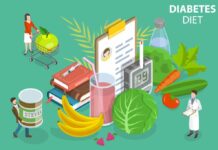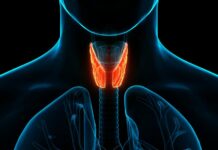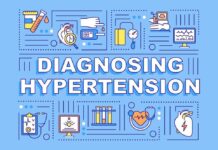Research shows that 3/4 of people who suffer a first-time heart attack exhibit normal cholesterol levels [1]Canto, J. G., Kiefe, C. I., Rogers, W. J., Peterson, E. D., Frederick, P. D., French, W. J., Gibson, C. M., Pollack, C. V., Ornato, J. P., Zalenski, R. J., Penney, J., Tiefenbrunn, A. J., Greenland, … Continue reading. How is this possible when we’ve been taught to believe that high cholesterol is a (if not THE) major cause of heart disease?
The link between cholesterol and heart disease originated from a highly flawed 1960’s study which suggested that eating large amounts of meat and dairy raises the risk of having a heart attack.
In the 50 years that followed, a massive transformation took place in America during which two highly influential multi-billion dollar enterprises were created:
- The pharmaceutical industry produced cholesterol drugs, and
- The food industry manufactured a tidal wave of chemical-filled low-fat and cholesterol-free foods.
Even worse than shoveling enormous amounts of health-destroying Frankenfoods and harmful food additives into the mouths of our children was the resultant shift in nutritional focus.
Since fat was no longer “on the menu,” people turned to refined carbohydrates, frozen meals, and processed dairy instead.
Here is a summary of the most important facts you should know about cholesterol:
- Cholesterol is NOT evil. In fact, it’s necessary for the healing process and life itself.
- Cholesterol is imperative for the creation of new cells and the repair of damaged cells. It’s also necessary for forming memories, driving neurological functions (brain and nerves), and synthesizing hormones like Vitamin D, estrogen, testosterone, and cortisone. If cholesterol is high, it’s because the body needs it.
- Most of the cholesterol in the body is created by the liver and NOT the result of eating cholesterol from real food like eggs and red meat.
- The cholesterol in food does NOT raise serum (blood) cholesterol.
- LDL, or “bad” cholesterol, is just as important as HDL (good) cholesterol.
- High cholesterol is not a disease. It’s a “risk factor” for disease, and treating high cholesterol (an effect) with drugs does not address the underlying problem.
- Statin drugs for treating high cholesterol are some of the most dangerous drugs in existence and have been linked in over 900 scientific studies to more than 300 adverse health effects – including breast cancer [2]McDougall, J. A., Malone, K. E., Daling, J. R., Cushing-Haugen, K. L., Porter, P. L., & Li, C. I. (2013, September 1). Long-Term Statin Use and Risk of Ductal and Lobular Breast Cancer among … Continue reading, prostate cancer [3]Chang, C. C., Ho, S. C., Chiu, H. F., & Yang, C. Y. (2011, April 7). Statins increase the risk of prostate cancer: A population-based case-control study. The Prostate, 71(16), 1818–1824. … Continue reading, colorectal cancer [4]Lakha, F., Theodoratou, E., Farrington, S. M., Tenesa, A., Cetnarskyj, R., Din, F. V. N., Porteous, M. E., Dunlop, M. G., & Campbell, H. (2012, October 22). Statin use and association with … Continue reading, osteoarthritis [5]Riddle, D. L., Moxley, G., & Dumenci, L. (2012, November 21). Associations between Statin use and changes in pain, function and structural progression: a longitudinal study of persons with knee … Continue reading, cataracts [6]Leuschen, J., Mortensen, E. M., Frei, C. R., Mansi, E. A., Panday, V., & Mansi, I. (2013, November 1). Association of Statin Use With Cataracts. JAMA Ophthalmology, 131(11), 1427. … Continue reading, diabetes [7]Culver, A. L. (2012, January 23). Statin Use and Risk of Diabetes Mellitus in Postmenopausal Women in the Women’s Health Initiative. Archives of Internal Medicine, 172(2), 144. … Continue reading, atherosclerosis [8]Saremi, A., Bahn, G., & Reaven, P. D. (2012, October 13). Progression of Vascular Calcification Is Increased With Statin Use in the Veterans Affairs Diabetes Trial (VADT). Diabetes Care, 35(11), … Continue reading, rheumatoid arthritis [9]de Jong, H. J. I., Klungel, O. H., van Dijk, L., Vandebriel, R. J., Leufkens, H. G. M., van der Laan, J., Tervaert, J. W. C., & van Loveren, H. (2011, October 6). Use of statins is associated … Continue reading, cell death [10]Rabkin, S. W., & Tsang, M. Y. (2008). Interaction of the HMG-CoA Reductase Inhibitor Lovastatin and Nitric Oxide in Cardiomyocyte Cell Death. Pharmacology, 82(1), 74–82. … Continue reading [11]Rabkin, S. W., Lodha, P., & Kong, J. Y. (2007, March). Reduction of protein synthesis and statin-induced cardiomyocyte cell death. Cardiovascular Toxicology, 7(1), 1–9. … Continue reading, and decreased heart function [12]Rubinstein, J., Aloka, F., & Abela, G. S. (2009, December). Statin Therapy Decreases Myocardial Function as Evaluated Via Strain Imaging. Clinical Cardiology, 32(12), 684–689. … Continue reading.Note: This is just a small sample of scientific studies linking statin drugs to debilitating health conditions. It certainly makes one wonder why these drugs are even legal.
- Cholesterol does NOT cause heart disease. After performing over 5,000 open-heart surgeries, a heart surgeon explains in this article that INFLAMMATION is the real problem.
7 Natural Remedies for High Cholesterol
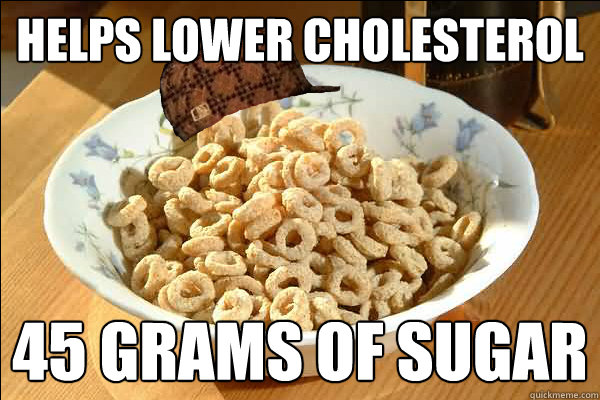
Our previous article explains in more detail the specific lifestyle changes required to get high cholesterol under control.
This article, on the other hand, will focus on a list of foods scientifically proven to improve blood lipid panels and assist in healthy cholesterol balance.
1. Black Seed
I mention black seed a lot, but that’s because of the seemingly endless health benefits (from killing MRSA to destroying cancer cells) science has demonstrated it offers.
Research shows that black seed improves lipid profiles, raises HDL cholesterol levels, and lowers LDL cholesterol levels [13]Ibrahim RM, Hamdan NS, Ismail M, Saini SM, Abd Rashid SN, Abd Latiff L, Mahmud R. Protective Effects of Nigella sativa on Metabolic Syndrome in Menopausal Women. Adv Pharm Bull. 2014;4(1):29-33. doi: … Continue reading [14]Dahri AH, Chandiol AM, Rahoo AA, Memon RA. Effect of Nigella sativa (kalonji) on serum cholesterol of albino rats. J Ayub Med Coll Abbottabad. 2005 Apr-Jun;17(2):72-4. PMID: 16092657..
2. Niacin
Niacin is Vitamin B3 and has exhibited an ability to outperform some prescription meds in reducing cholesterol and preventing heart disease [15]Taylor, A. J., Villines, T. C., Stanek, E. J., Devine, P. J., Griffen, L., Miller, M., Weissman, N. J., & Turco, M. (2009, November 26). Extended-Release Niacin or Ezetimibe and Carotid … Continue reading.
Food sources of niacin include lean meats, poultry, fish, nuts, and eggs.
If considering a niacin supplement, we recommend a version made from real food rather than a synthetic source.
3. Coconut Oil
Coconut is another food with more health benefits than could be discussed here. It made our list of 6 Powerhouse Foods You Should Definitely Be Eating.
Coconut oil is a healthy source of saturated fat (yes, I said healthy saturated fat) and contains polyphenols (antioxidants [16]Scalbert, A., Johnson, I. T., & Saltmarsh, M. (2005, January 1). Polyphenols: antioxidants and beyond. The American Journal of Clinical Nutrition, 81(1), 215S-217S. … Continue reading) responsible for protecting many organs against chemical toxins and normalizing blood lipids [17]Nevin, K., & Rajamohan, T. (2004, September). Beneficial effects of virgin coconut oil on lipid parameters and in vitro LDL oxidation. Clinical Biochemistry, 37(9), 830–835. … Continue reading [18]Feranil AB, Duazo PL, Kuzawa CW, Adair LS. Coconut oil is associated with a beneficial lipid profile in pre-menopausal women in the Philippines. Asia Pac J Clin Nutr. 2011;20(2):190-5. PMID: … Continue reading.
Coconut oil can be eaten raw or used in place of unhealthy vegetable oils when cooking.
Other foods rich in polyphenols are cloves, peppermint, oregano, chestnuts, blueberries, black olives, and pecans.
4. Nuts & Seeds
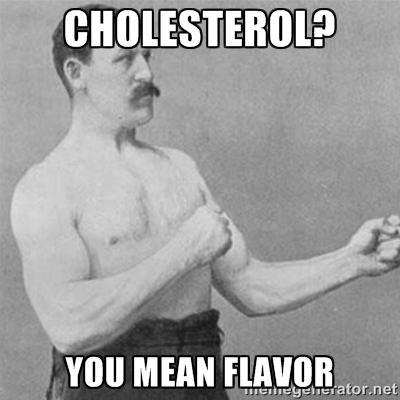 Many nuts and seeds contain impressive amounts of important vitamins, minerals, and healthy fats.
Many nuts and seeds contain impressive amounts of important vitamins, minerals, and healthy fats.
The following were all shown scientifically to either balance blood lipid levels, lower LDL cholesterol counts, or increase amounts of “good” cholesterol in the blood.
- Almonds [19]Li, S. C., Liu, Y. H., Liu, J. F., Chang, W. H., Chen, C. M., & Chen, C. Y. O. (2011, April). Almond consumption improved glycemic control and lipid profiles in patients with type 2 diabetes … Continue reading
- Flaxseed [20]Pan, A., Yu, D., Demark-Wahnefried, W., Franco, O. H., & Lin, X. (2009, June 10). Meta-analysis of the effects of flaxseed interventions on blood lipids. The American Journal of Clinical … Continue reading
- Walnuts [21]Banel, D. K., & Hu, F. B. (2009, May 20). Effects of walnut consumption on blood lipids and other cardiovascular risk factors: a meta-analysis and systematic review. The American Journal of … Continue reading [22]Torabian, S., Haddad, E., Cordero-MacIntyre, Z., Tanzman, J., Fernandez, M. L., & Sabate, J. (2010, January 20). Long-term walnut supplementation without dietary advice induces favorable serum … Continue reading
- Macadamia Nuts [23]Griel, A. E., Cao, Y., Bagshaw, D. D., Cifelli, A. M., Holub, B., & Kris-Etherton, P. M. (2008, April 1). A Macadamia Nut-Rich Diet Reduces Total and LDL-Cholesterol in Mildly … Continue reading [24]Hiraoka-Yamamoto, J., Ikeda, K., Negishi, H., Mori, M., Hirose, A., Sawada, S., Onobayashi, Y., Kitamori, K., Kitano, S., Tashiro, M., Miki, T., & Yamori, Y. (2004, December). SERUM LIPID EFFECTS … Continue reading [25]Curb, J. D., Wergowske, G., Dobbs, J. C., Abbott, R. D., & Huang, B. (2000, April 24). Serum Lipid Effects of a High–Monounsaturated Fat Diet Based on Macadamia Nuts. Archives of Internal … Continue reading
5. Cranberry Juice
This is another instance where polyphenols illustrate their effectiveness in human health.
Research Conclusion: “According to the findings, abdominally obese men who consume daily CJC have higher plasma HDL-cholesterol concentrations. Based on the hypothesis that the consumption of flavonoid-rich foods is cardioprotective, we propose that polyphenolic compounds in cranberries may be responsible for this effect.” [26]Ruel, G., Pomerleau, S., Couture, P., Lemieux, S., Lamarche, B., & Couillard, C. (2006, August). Favourable impact of low-calorie cranberry juice consumption on plasma HDL-cholesterol … Continue reading
*We discourage the use of high-sugar cranberry juices found in most grocery stores, especially those which contain preservatives, colorings, and artificial sweeteners. Buying fresh organic cranberries and blending them into a juice or smoothie is a much healthier option.
6. Curcumin
Turmeric is a true superfood, and curcumin is a compound in turmeric that not only has been studied extensively, but found to have healing effects for a wide range of health issues – including various forms of cancer.
Curcumin’s well documented anti-inflammatory properties are thought to be the reason for its usefulness with high cholesterol [27]Miquel, J., Bernd, A., Sempere, J., Dı́az-Alperi, J., & Ramı́rez, A. (2002, February). The curcuma antioxidants: pharmacological effects and prospects for future clinical use. A review. … Continue reading [28]Alwi I, Santoso T, Suyono S, Sutrisna B, Suyatna FD, Kresno SB, Ernie S. The effect of curcumin on lipid level in patients with acute coronary syndrome. Acta Med Indones. 2008 Oct;40(4):201-10. PMID: … Continue reading.
7. Exercise
This should go without saying, but exercise is valuable in every human function. It is a genetic necessity.
In one study, subjects were placed on a low-fat, low-cholesterol diet and an aerobic exercise regimen. Interestingly, the diet had no effect on high cholesterol except for those in the exercise group [29]Stefanick, M. L., Mackey, S., Sheehan, M., Ellsworth, N., Haskell, W. L., & Wood, P. D. (1998, July 2). Effects of Diet and Exercise in Men and Postmenopausal Women with Low Levels of HDL … Continue reading who experienced “significant” serum LDL reduction.
This is just more evidence that cholesterol in food does NOT affect cholesterol levels in the blood.
Does any of this mean that we should use these foods to treat high cholesterol?
No, because food is not a treatment for disease. It simply means that food contains many of the necessary nutrients the body needs for balance, optimal function, and healing.
References
| ↑1 | Canto, J. G., Kiefe, C. I., Rogers, W. J., Peterson, E. D., Frederick, P. D., French, W. J., Gibson, C. M., Pollack, C. V., Ornato, J. P., Zalenski, R. J., Penney, J., Tiefenbrunn, A. J., Greenland, P., & NRMI Investigators, F. T. (2011, November 16). Number of Coronary Heart Disease Risk Factors and Mortality in Patients With First Myocardial Infarction. JAMA, 306(19). https://doi.org/10.1001/jama.2011.1654 |
|---|---|
| ↑2 | McDougall, J. A., Malone, K. E., Daling, J. R., Cushing-Haugen, K. L., Porter, P. L., & Li, C. I. (2013, September 1). Long-Term Statin Use and Risk of Ductal and Lobular Breast Cancer among Women 55 to 74 Years of Age. Cancer Epidemiology, Biomarkers &Amp; Prevention, 22(9), 1529–1537. https://doi.org/10.1158/1055-9965.epi-13-0414 |
| ↑3 | Chang, C. C., Ho, S. C., Chiu, H. F., & Yang, C. Y. (2011, April 7). Statins increase the risk of prostate cancer: A population-based case-control study. The Prostate, 71(16), 1818–1824. https://doi.org/10.1002/pros.21401 |
| ↑4 | Lakha, F., Theodoratou, E., Farrington, S. M., Tenesa, A., Cetnarskyj, R., Din, F. V. N., Porteous, M. E., Dunlop, M. G., & Campbell, H. (2012, October 22). Statin use and association with colorectal cancer survival and risk: case control study with prescription data linkage. BMC Cancer, 12(1). https://doi.org/10.1186/1471-2407-12-487 |
| ↑5 | Riddle, D. L., Moxley, G., & Dumenci, L. (2012, November 21). Associations between Statin use and changes in pain, function and structural progression: a longitudinal study of persons with knee osteoarthritis. Annals of the Rheumatic Diseases, 72(2), 196–203. https://doi.org/10.1136/annrheumdis-2012-202159 |
| ↑6 | Leuschen, J., Mortensen, E. M., Frei, C. R., Mansi, E. A., Panday, V., & Mansi, I. (2013, November 1). Association of Statin Use With Cataracts. JAMA Ophthalmology, 131(11), 1427. https://doi.org/10.1001/jamaophthalmol.2013.4575 |
| ↑7 | Culver, A. L. (2012, January 23). Statin Use and Risk of Diabetes Mellitus in Postmenopausal Women in the Women’s Health Initiative. Archives of Internal Medicine, 172(2), 144. https://doi.org/10.1001/archinternmed.2011.625 |
| ↑8 | Saremi, A., Bahn, G., & Reaven, P. D. (2012, October 13). Progression of Vascular Calcification Is Increased With Statin Use in the Veterans Affairs Diabetes Trial (VADT). Diabetes Care, 35(11), 2390–2392. https://doi.org/10.2337/dc12-0464 |
| ↑9 | de Jong, H. J. I., Klungel, O. H., van Dijk, L., Vandebriel, R. J., Leufkens, H. G. M., van der Laan, J., Tervaert, J. W. C., & van Loveren, H. (2011, October 6). Use of statins is associated with an increased risk of rheumatoid arthritis. Annals of the Rheumatic Diseases, 71(5), 648–654. https://doi.org/10.1136/ard.2011.155622 |
| ↑10 | Rabkin, S. W., & Tsang, M. Y. (2008). Interaction of the HMG-CoA Reductase Inhibitor Lovastatin and Nitric Oxide in Cardiomyocyte Cell Death. Pharmacology, 82(1), 74–82. https://doi.org/10.1159/000134380 |
| ↑11 | Rabkin, S. W., Lodha, P., & Kong, J. Y. (2007, March). Reduction of protein synthesis and statin-induced cardiomyocyte cell death. Cardiovascular Toxicology, 7(1), 1–9. https://doi.org/10.1007/s12012-007-0003-7 |
| ↑12 | Rubinstein, J., Aloka, F., & Abela, G. S. (2009, December). Statin Therapy Decreases Myocardial Function as Evaluated Via Strain Imaging. Clinical Cardiology, 32(12), 684–689. https://doi.org/10.1002/clc.20644 |
| ↑13 | Ibrahim RM, Hamdan NS, Ismail M, Saini SM, Abd Rashid SN, Abd Latiff L, Mahmud R. Protective Effects of Nigella sativa on Metabolic Syndrome in Menopausal Women. Adv Pharm Bull. 2014;4(1):29-33. doi: 10.5681/apb.2014.005. Epub 2013 Dec 23. PMID: 24409406; PMCID: PMC3885365. |
| ↑14 | Dahri AH, Chandiol AM, Rahoo AA, Memon RA. Effect of Nigella sativa (kalonji) on serum cholesterol of albino rats. J Ayub Med Coll Abbottabad. 2005 Apr-Jun;17(2):72-4. PMID: 16092657. |
| ↑15 | Taylor, A. J., Villines, T. C., Stanek, E. J., Devine, P. J., Griffen, L., Miller, M., Weissman, N. J., & Turco, M. (2009, November 26). Extended-Release Niacin or Ezetimibe and Carotid Intima–Media Thickness. New England Journal of Medicine, 361(22), 2113–2122. https://doi.org/10.1056/nejmoa0907569 |
| ↑16 | Scalbert, A., Johnson, I. T., & Saltmarsh, M. (2005, January 1). Polyphenols: antioxidants and beyond. The American Journal of Clinical Nutrition, 81(1), 215S-217S. https://doi.org/10.1093/ajcn/81.1.215s |
| ↑17 | Nevin, K., & Rajamohan, T. (2004, September). Beneficial effects of virgin coconut oil on lipid parameters and in vitro LDL oxidation. Clinical Biochemistry, 37(9), 830–835. https://doi.org/10.1016/j.clinbiochem.2004.04.010 |
| ↑18 | Feranil AB, Duazo PL, Kuzawa CW, Adair LS. Coconut oil is associated with a beneficial lipid profile in pre-menopausal women in the Philippines. Asia Pac J Clin Nutr. 2011;20(2):190-5. PMID: 21669587; PMCID: PMC3146349. |
| ↑19 | Li, S. C., Liu, Y. H., Liu, J. F., Chang, W. H., Chen, C. M., & Chen, C. Y. O. (2011, April). Almond consumption improved glycemic control and lipid profiles in patients with type 2 diabetes mellitus. Metabolism, 60(4), 474–479. https://doi.org/10.1016/j.metabol.2010.04.009 |
| ↑20 | Pan, A., Yu, D., Demark-Wahnefried, W., Franco, O. H., & Lin, X. (2009, June 10). Meta-analysis of the effects of flaxseed interventions on blood lipids. The American Journal of Clinical Nutrition, 90(2), 288–297. https://doi.org/10.3945/ajcn.2009.27469 |
| ↑21 | Banel, D. K., & Hu, F. B. (2009, May 20). Effects of walnut consumption on blood lipids and other cardiovascular risk factors: a meta-analysis and systematic review. The American Journal of Clinical Nutrition, 90(1), 56–63. https://doi.org/10.3945/ajcn.2009.27457 |
| ↑22 | Torabian, S., Haddad, E., Cordero-MacIntyre, Z., Tanzman, J., Fernandez, M. L., & Sabate, J. (2010, January 20). Long-term walnut supplementation without dietary advice induces favorable serum lipid changes in free-living individuals. European Journal of Clinical Nutrition, 64(3), 274–279. https://doi.org/10.1038/ejcn.2009.152 |
| ↑23 | Griel, A. E., Cao, Y., Bagshaw, D. D., Cifelli, A. M., Holub, B., & Kris-Etherton, P. M. (2008, April 1). A Macadamia Nut-Rich Diet Reduces Total and LDL-Cholesterol in Mildly Hypercholesterolemic Men and Women. The Journal of Nutrition, 138(4), 761–767. https://doi.org/10.1093/jn/138.4.761 |
| ↑24 | Hiraoka-Yamamoto, J., Ikeda, K., Negishi, H., Mori, M., Hirose, A., Sawada, S., Onobayashi, Y., Kitamori, K., Kitano, S., Tashiro, M., Miki, T., & Yamori, Y. (2004, December). SERUM LIPID EFFECTS OF A MONOUNSATURATED (PALMITOLEIC) FATTY ACID-RICH DIET BASED ON MACADAMIA NUTS IN HEALTHY, YOUNG JAPANESE WOMEN. Clinical and Experimental Pharmacology and Physiology, 31(s2), S37–S38. https://doi.org/10.1111/j.1440-1681.2004.04121.x |
| ↑25 | Curb, J. D., Wergowske, G., Dobbs, J. C., Abbott, R. D., & Huang, B. (2000, April 24). Serum Lipid Effects of a High–Monounsaturated Fat Diet Based on Macadamia Nuts. Archives of Internal Medicine, 160(8), 1154. https://doi.org/10.1001/archinte.160.8.1154 |
| ↑26 | Ruel, G., Pomerleau, S., Couture, P., Lemieux, S., Lamarche, B., & Couillard, C. (2006, August). Favourable impact of low-calorie cranberry juice consumption on plasma HDL-cholesterol concentrations in men. British Journal of Nutrition, 96(2), 357–364. https://doi.org/10.1079/bjn20061814 |
| ↑27 | Miquel, J., Bernd, A., Sempere, J., Dı́az-Alperi, J., & Ramı́rez, A. (2002, February). The curcuma antioxidants: pharmacological effects and prospects for future clinical use. A review. Archives of Gerontology and Geriatrics, 34(1), 37–46. https://doi.org/10.1016/s0167-4943(01)00194-7 |
| ↑28 | Alwi I, Santoso T, Suyono S, Sutrisna B, Suyatna FD, Kresno SB, Ernie S. The effect of curcumin on lipid level in patients with acute coronary syndrome. Acta Med Indones. 2008 Oct;40(4):201-10. PMID: 19151449. |
| ↑29 | Stefanick, M. L., Mackey, S., Sheehan, M., Ellsworth, N., Haskell, W. L., & Wood, P. D. (1998, July 2). Effects of Diet and Exercise in Men and Postmenopausal Women with Low Levels of HDL Cholesterol and High Levels of LDL Cholesterol. New England Journal of Medicine, 339(1), 12–20. https://doi.org/10.1056/nejm199807023390103 |


